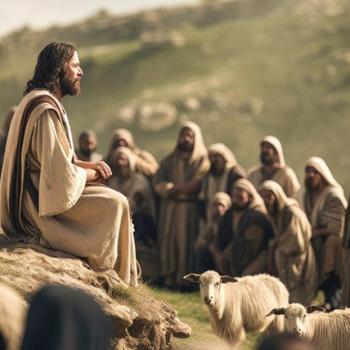Today’s guest post comes from Michael Cooper, author of Ephesiology: The Study of the Ephesian Movement. He holds a PhD in Intercultural Studies from Trinity Evangelical Divinity School. You can contact him at [email protected]. For his first post in this series, click here.
In late 1990, I returned to St. Louis after an intense ministry time in Romania. As I journeyed to my sending church, I made a slight detour to Starnberg to have a meal with a man with whom I had the greatest admiration, Bud Hinkson. Over a pizza and soda, Bud and I debated whether Paul was a church planter or a disciple-maker.
I was clearly influenced by the latest trend in missions. That year, Peter Wagner boldly declared that research from 1960-1990 indicated that church planting is “the single most effective evangelistic methodology under heaven” (Church Planting for a Greater Harvest, 11). I was convinced that Paul’s primary mission was to start churches. Bud, on the other hand, was less convinced. He saw Paul’s task as making disciples.
The debate regarding Paul’s focus on ministry continues today. During MissioNexus 2019, Ted Esler moderated an exchange between Dave Coles, representing a church planting movement approach, and Don Little, representing a “traditional” approach to church planting. After the presentation, I challenged the presenters with the question, “Where in the Bible are we commanded to plant churches?” The simple and obvious response was, “it is not commanded.” Indeed, J.D. Payne points out,
“nowhere in the Bible is the church commanded to plant churches” (Apostolic Church Planting, 114).
But if Paul didn’t church plant, then he must have made disciples as Bud believed. So, after thirty years of ministry, I must admit that I was wrong. Making disciples is the mandate while church planting is a result.
Defining “Disciple”
According to some people, the word “disciple” is last used in Acts 21:16 when Luke, Paul, and others, stayed with the disciple Mnason of Cyprus who had a house in Jerusalem. Chronologically speaking, however, John is the last to use the word (around 67 AD) in his gospel (John 21:24).[1] It was only natural for him to use the imagery of a disciple while writing to an audience who had long been disciples of Heraclitus, the sixth century BC Greek Ionian pre-Socratic philosopher renowned for his writings on the logos and kosmos (two prominent ideas in John’s gospel).
Consistent with John’s use of the word, the disciples of Greek philosophers sought to imitate the philosophers’ life and deed. More than the philosopher’s written words, the example of how he lived was equally as important as what he taught. Their “doctrines” and their “lives” were indistinguishable from each other. Indeed, as John Sellars points out,
“If anything, it is the written doctrines that are of secondary status, only coming to life when they are put into practice” (The Art of Living, 31).
Philosophy was a way of life, not simply a set of pedagogical dogma. This certainly finds its way into the New Testament understanding of being a disciple. We’re reminded of Paul’s comment, “Be imitators of God” (Eph 5:1), the very essence of what it means to be a disciple.
Interestingly, the word is remarkably absent from all of the epistles, but the idea is no doubt still present. In the New Testament, a disciple is more than someone who grows in their theological knowledge of God. A disciple fellowships with other believers, worships in a community, and prays like those assembled in a house in Acts 4. Empowered by the Holy Spirit, a disciple then boldly declares the word of God such that more and more people become followers of Jesus.
This understanding of a disciple is highlighted throughout the New Testament. Through a study of the early movement in Ephesus, we see at least thirteen characteristics common to them all.
- Disciples are respectful of people and culture when they engage in God’s mission (Acts 19:7, 37).
- Disciples surrender to God’s will and maintain the work of their first love in a theocentrically focused missiological theology (Eph 1; Eph 5:18-19; Rev 2:4).
- Disciples declare the mystery of Christ to the nations (Eph 3:4-10, 1 Tim 2:1-4).
- Disciples are equipped by movement leaders for ministry (Eph 4:12; 1 Timothy).
- Disciples exhibit the fruit of the Spirit (Eph 4-5).
- Disciples are empowered by the Holy Spirit to be witnesses (Eph 5:18-19, 2 Tim 1:7).
- Disciples are godly fathers and mothers, husbands and wives, employees and employers (Eph 5:22-6:9).
- Disciples pray for opportunities to share the gospel because they know God is most glorified when more people are worshipping him (Eph 6:18-20, 1 Tim 2:1-4).
- Disciples stand up for the marginalized (1 Tim 2:8-15, 5:3-16; Rev 2:6).
- Disciples learn sound doctrine from movement leaders who can teach (1 Tim 4:7).
- Disciples are willing to suffer for the sake of the gospel (2 Tim 1:8).
- Disciples are committed to multiplying more disciples (2 Tim 2:2).
- Disciples defend the faith against false teaching (Rev 2:2).
Rediscovering God’s Passion for Movements
Churches are not started without disciples. Disciples are not made unless they identify with the life of Christ. And people cannot identify with Christ unless we are on God’s mission.
The story of that mission is beautifully told in the study of the Ephesian movement. From its inception in Acts 18:18 through its phenomenal growth in the first century, the church in Ephesus provides a framework for what a movement of God looks like. It might surprise you that more than 40 percent of the New Testament helps tell her story. It is best characterized by faithful disciples committed to a missiologically theocentric passion to declare the glory of God to the nations. They viewed it not as a responsibility, but as their identity, as imitators of the God who desires all “to be saved and to come to the knowledge of the truth” (1 Tim 2:4).
You can learn more about the Ephesian movement by reading the biblical account and perhaps Ephesiology: The Study of the Ephesian Movement might aid in a rediscovery of God’s passion for movements.
[1] See my argument for an early date of John’s gospel in Ephesiology: The Study of the Ephesian Movement (Littleton, CO: William Carey Publishing, 2020), 82-87.













